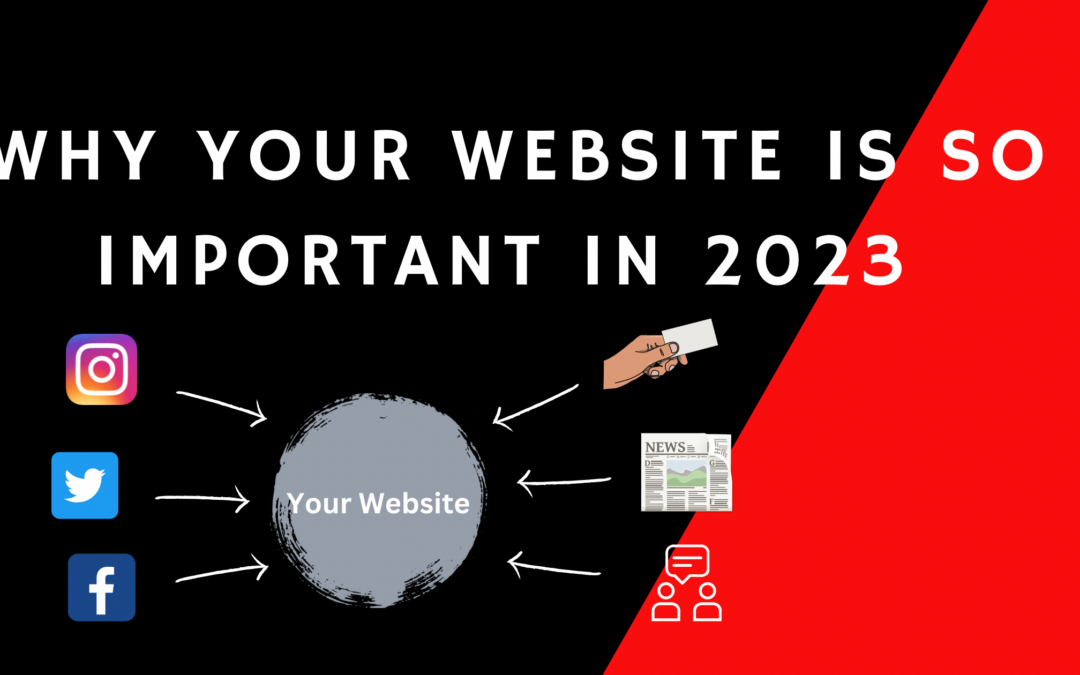One of the key benefits of having a website is the ability to collect valuable information about your customers. By collecting email addresses, you can build a database of prospects and customers who have shown an interest in your products or services. This information is incredibly valuable and can be used to create targeted campaigns and build relationships with your customers. In addition, by having a website, you can track and analyze your website traffic, allowing you to see which marketing efforts are driving the most traffic and conversions.
A website is the central hub for all your marketing efforts. Whether you are a small business or a large corporation, your website serves as the foundation for your online presence and should be the centerpiece of your marketing strategy. From print materials and business cards to television ads and social media, every marketing effort should drive traffic back to your website and help you achieve your marketing goals.
Another advantage of having a website is that it provides a level of control over your marketing efforts that you simply can’t get with other marketing channels. With a website, you have complete control over the content, design, and messaging. This means that you can change your marketing message at any time to reflect changes in your business or to respond to market conditions. You can also control the user experience and create a tailored experience for your customers that helps to build your brand and increase conversions.
For example, let’s say you are a small business that sells handmade crafts. You may have a strong presence on social media, with a large following of customers who are interested in your products. However, when it comes to actually making a purchase, many of your customers may prefer to visit your website rather than make a purchase through social media. This is where your website becomes essential, as it provides a direct channel for your customers to make a purchase and helps to build trust and credibility with your brand.
Similarly, a well-designed website can also enhance your offline marketing efforts. For example, if you have a print advertisement in a magazine or a business card, you can include your website address on these materials to drive traffic back to your website. This not only helps to increase your visibility, but it also provides a way for potential customers to learn more about your products and services.
In addition, a website can also help to support your television advertising efforts. For example, if you have a television commercial that promotes a particular product or service, you can include your website address in the ad to drive traffic to your site. This allows you to build upon the impact of your television advertising and drive additional sales and conversions.
Finally, a website is an essential marketing asset because it provides you with a way to reach a global audience. With a website, you can reach customers from all over the world, regardless of location. This is particularly important for businesses that sell products or services online, as it provides a way for customers to purchase from you 24 hours a day, 7 days a week.
In conclusion, a website is the cornerstone of all marketing efforts, providing you with a central hub for your online presence and a way to collect valuable information about your customers. Whether you are a small business or a large corporation, your website should be the centerpiece of your marketing strategy, supporting your print materials, business cards, television ads, and social media efforts. By having a website, you have complete control over your marketing efforts and can reach a global audience, helping you to build your brand, increase conversions, and achieve your marketing goals.

